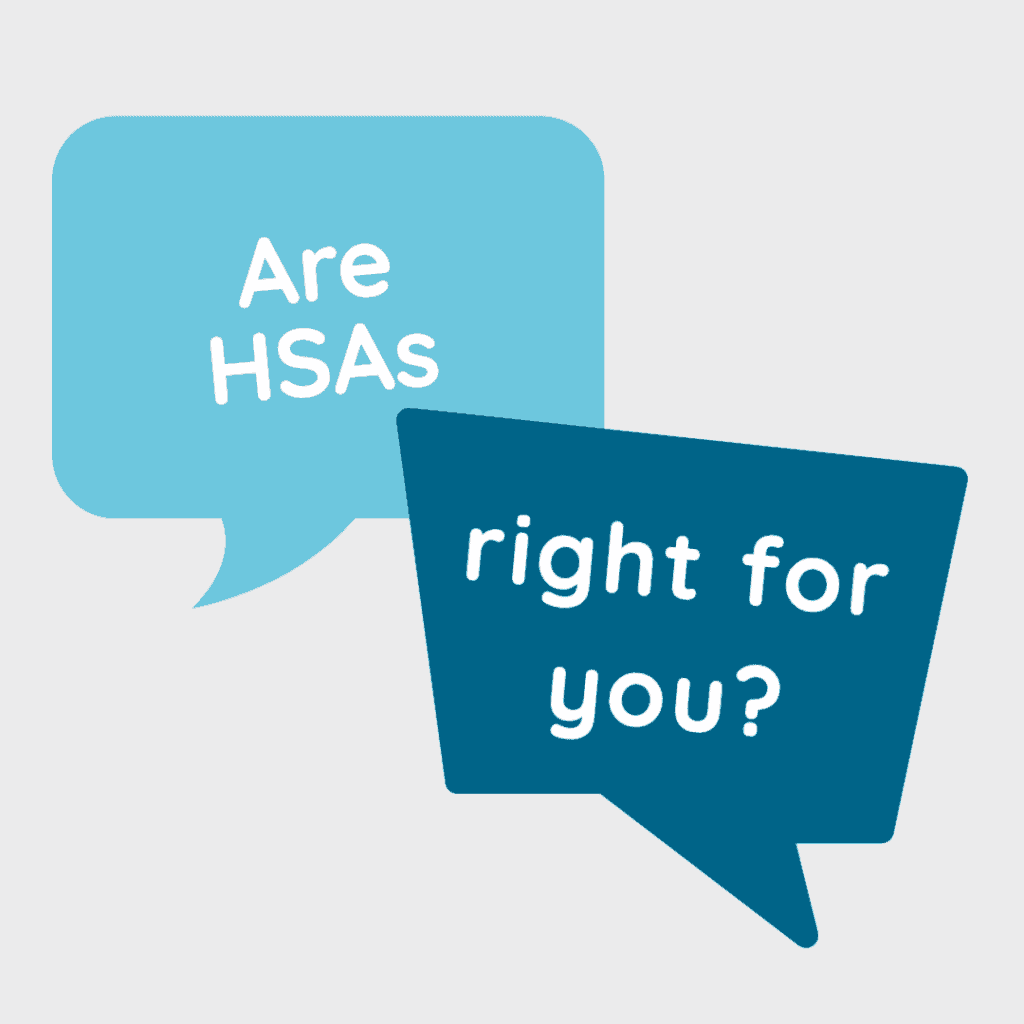Employers have many options of providing health coverage for employees, one of which is a Health Savings Account.
Health Savings Accounts, or HSAs, are intended to supplement a group health plan. A “group health plan” is the kind of traditional health plan with which we’re all familiar: monthly premiums, deductibles, copays, coinsurance, out-of-pocket maximums, and all the other ingredients you see in these kinds of plans.
In general, the purpose of an HSA is to help employees pay for medical expenses by providing them a tax-advantaged way to save their own money in an account specifically made for medical expenses.

HSA Requirements
A good place to start talking about HSAs is by mentioning that not everyone can just go out and get one. For an HSA, you must be enrolled in a group plan with a high deductible, known as a High Deductible Health Plan (HDHP).
What counts as a high deductible? Here’s the regulation copy-pasted straight from Healthcare.gov, a website run by the US government.
For 2020, the IRS defines a high deductible health plan as any plan with a deductible of at least $1,400 for an individual or $2,800 for a family. An HDHP’s total yearly out-of-pocket expenses (including deductibles, copayments, and coinsurance) can’t be more than $6,900 for an individual or $13,800 for a family. (This limit doesn’t apply to out-of-network services.)
(Important note: Just because your group health plan has a high deductible doesn’t mean that it automatically makes you eligible for an HSA. Make sure to look for the phrase “HSA-eligible” when you shop for plans.)
As a business owner, you can set up a company HSA for your employees as long as your health plan is eligible. Alternatively, your employees can sign on for their own HSA plan if they like.
HSA Characteristics and Benefits
Every year, an employee decides how much money to contribute to their HSA for that year. There are limits to how much an employee can contribute in a given year: For 2020, the limit is $3,550 for self-only or $7,100 for an employee with a family. Employees aged 55 or older can contribute an extra $1,000 to their plan.
As an employer, you are allowed to contribute to your employees’ HSA plans, but your contributions plus your employee’s contributions must not exceed the annual limits.
HSA contributions are pre-tax, meaning that they come out of an employee’s paycheck before withholdings and payroll taxes. This effectively means that employees’ contributions get “boosted” by anywhere from 8% up to 45% depending on their tax bracket. After-tax dollars may be contributed to an HSA and then deducted from income taxes. HSAs can earn interest tax-free.
As the name implies, a Health Savings Account does not expire at the end of the year or if an employee leaves your business. The savings can be rolled into an HSA for an employee’s next employer or personally held by the employee. In other words, HSAs are portable.
The money in an HSA must only be used for eligible medical expenses or else the employee will incur two penalties: a flat 20% penalty plus the loss of any tax advantages. The list of approved expenses is long, but can be found here. Note that some expenses require a Letter of Medical Necessity from a doctor (LMN) or a prescription in order to be paid for with HSA dollars.
HSA Disadvantages

Is an HSA right for you or your employees? We have seen the purpose of HSAs and their advantages, but there are disadvantages to the HSA:
- Employees are expected to plan out their contributions to an HSA, but medical emergencies are unplanned.
- Beyond the fact that emergencies are unplanned, pricing for medical procedures in the United States is incredibly opaque. For example it is hard to know how much a knee replacement is going to cost with all the extra fees and charges.
- In the end, the money going into an HSA is the employee’s own money. Sure there are some tax savings, but these savings mostly kick in for higher earners.
- The penalties for non-medical expenses are severe.
After weighing all the pros and cons of an HSA, is it the right choice for your business? We can’t answer this question for you in a blog post of course. If you decide to speak to a specialist about signing up for an HSA, it can be important to consider whether the specialist earns a commission when a business signs up for benefits.
TL;DR: A Health Savings Account is just that: a savings account for health expenses. The plans offer tax savings, are portable, and cover a wide range of medical expenses. But these plans put the burden of planning and paying for medical expenses on the employee, and severely punish employees for non-medical use.
Do you need help figuring out if HSAs are best for you? You can reach out to us any time by scheduling an appointment here.






